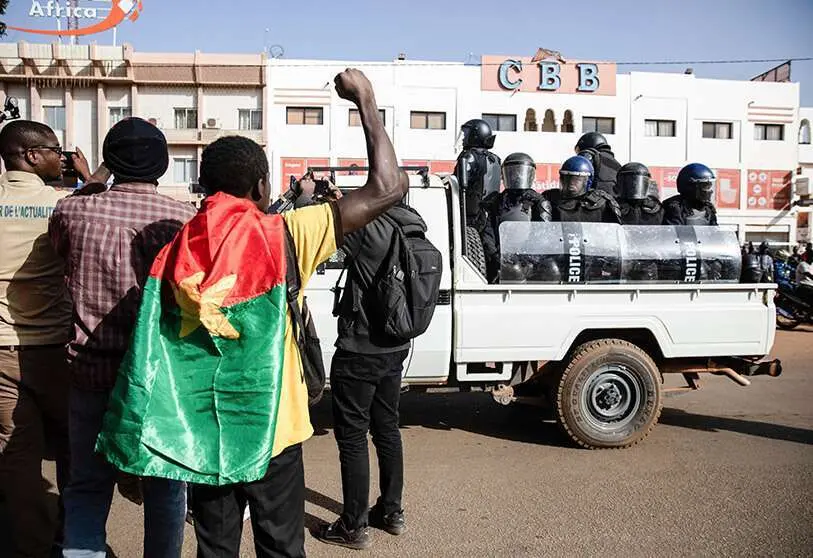Jihadism destabilises Burkina Faso

The weekend has been a tense one in the capital and several cities of Burkina Faso, the Atlantic African country that has been plagued for the past two years by jihadist terrorism, which has taken control of a large part of the territory. The news are still confusing, but everything is beginning to confirm that there has been a rebellion by soldiers that ended in the presidential palace with the arrest of the head of state, Roch Marc Christian Kaboré.
The Minister of Defence denied the presidential abduction and assured that everything continues to function normally, but the conviction both in the chancelleries and in the streets is that the president is still being held in a base outside the capital, Ouagadougou. According to reports in the French press this morning, it all began with a demonstration by young people who defied the existing ban to protest against the government's inability to stop the bloodshed being caused by jihadism.
Burkina Faso's twenty million inhabitants are living under a terrorist threat that has already left an estimated two thousand dead and 1.5 million displaced. Jihadism penetrated from neighbouring Mali and in a matter of months established an alarming foothold throughout the territory. Since then, attacks have been repeated daily against churches, official bodies, public figures and even army camps. Just a few weeks ago, one of these attacks claimed more than fifty victims.
The military has repeatedly called for reinforcements and better manpower to deal with the danger that is spreading like wildfire. President Roch Marc, who has been in power since 2015, has made efforts to meet these demands, but has always come up against limited resources and a lack of international aid. The French-led fight against terrorism in the region is polarised in Mali, where the situation has never ceased to be chaotic.
The news from Ouagadougou reports a weekend of general confusion, with outbreaks of violence promoted by different groups, both civilian and military, calling for an end to the bloodshed, and not only in the capital, but also in other major cities in the country. Protesters attempted to storm the presidential palace demanding a military government capable of stopping terrorism and set fire to the headquarters of the ruling MPP (Popular Movement for Progress) party.
Burkina Faso has gone through various political and military vicissitudes since its independence from France in 1960. At that time it was known as Upper Volta and it was the revolutionary president Thomas Sankara, known as the Che Guevara of Africa, who imposed the change of name to Burkina Faso, which means in the local language "Homeland of men of integrity". It is a poor country, but with the great tourist wealth of its national parks, now practically closed to visitors because of the terrorist threat.
Not yet a year ago, Spanish journalists David Beriain and Roberto Fraile were killed by a jihadist commando while making a documentary there.

